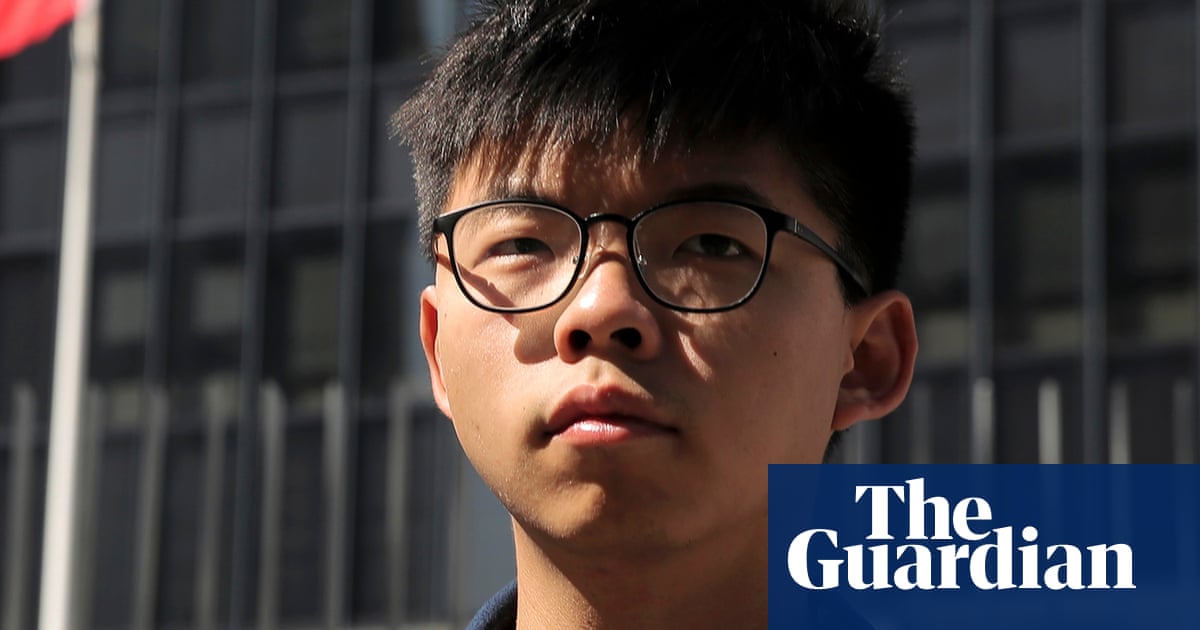Jailed pro-democracy activist Joshua Wong has been hit with further national security charges, a move rights groups said showed theHong Konggovernment was trying to keep dissidents behind bars for as long as possible.
Wong,a well-known activistwho has been in jail for more than four years either awaiting trial or serving sentences, is accused of conspiracy to collude with a foreign country. He appeared in court on Friday to hear the charge and did not apply for bail.
Hong Kong’s national security police said in a statement they had arrested a 28-year-old man on suspicion of the offence, as well as for “dealing with property known or believed to represent proceeds of an indictable offence”.
According to the charge sheet, viewed by Reuters and Hong Kong Free Press, Wong is accused of conspiring with fellow democracy activist Nathan Law, who is in exile overseas, and others to ask foreign countries, institutions, organisations or individuals outsideChinato impose sanctions or blockades.
He is also accused of conspiring to ask foreign parties to “seriously disrupt the formulation and implementation of laws and policies” in Hong Kong and China, “which was likely to cause serious consequences”, Hong Kong Free Pressreported.
The charge comes under Hong Kong’s national security law, which was imposed on the city by Beijing in 2020 after the 2019 pro-democracy protests brought the city to a standstill.
The law has beencriticised by foreign governmentsand rights groups as overly broad and ill-defined, and easily weaponised to crush the opposition by criminalising even benign acts of dissent. The Hong Kong and central Chinese governments reject the criticism and say the law was needed to restore order to the city.
Wong is due to be released in January 2027. He is serving protest-related sentences, including a 56-month term for his role amongthe so-called “Hong Kong 47”group of politicians, activists, campaigners and community members who held unofficial pre-election primaries in 2020.The cohort were sentenced in November, at the end of Hong Kong’s largest national security trial. Just two of the 47 were acquitted.
Human Rights Watch’s associate China director, Maya Wong, called the new charges against Wong “arbitrary, cruel and outrageous”.
“While imprisoned under one trumped-up charge, Joshua Wong has been suddenly slapped with yet another as the authorities appear intent on keeping one of Hong Kong’s most influential democracy leaders behind bars,” she said.
Amnesty International said the new charges could see him given a life sentence if found guilty.
“Hong Kong’s national security law is turning five years old at the end of the month, and these new charges against Joshua Wong show that its capacity to be used by the Hong Kong authorities to threaten human rights in the city is as potent and present as ever,” said the organisation’s China director, Sarah Brooks.
“Once again, the vague and sweeping offence of ‘collusion with foreign forces’ is being weaponised to justify an attack on the freedoms of expression and association.
“This latest charge against him underscores the authorities’ fear of prominent dissidents and shows the lengths they will go to keep them behind bars for as long as possible – in so doing, continuing a chilling effect on civic activism in the city.”
Reuters contributed to this report
